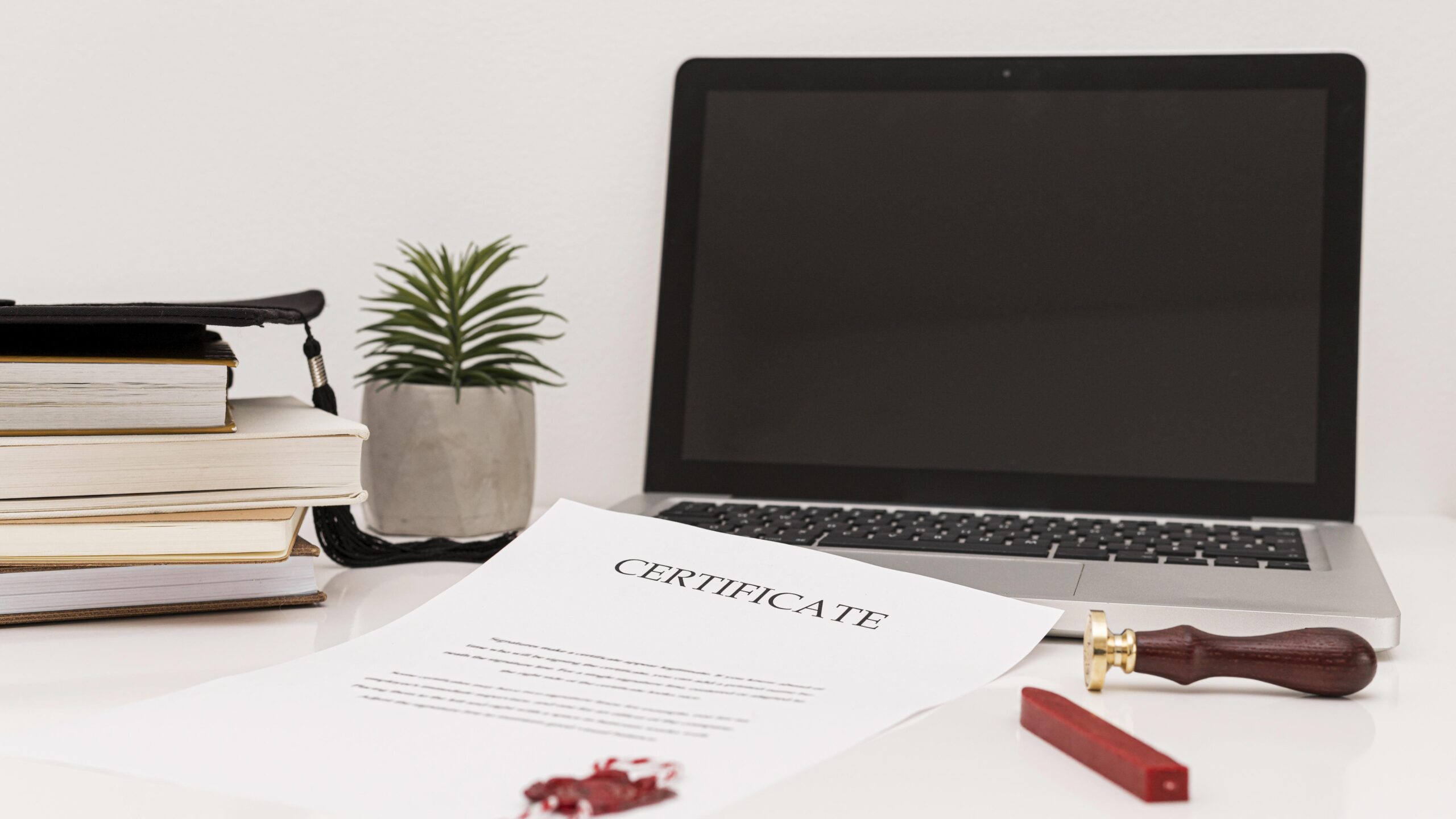What is a Business Registration Certificate and Why You Need It

In India, every legitimate company or startup begins its journey with one vital document—the business registration certificate. Whether you’re a private limited company, an LLP, or even a sole proprietorship in certain states, this certificate acts as the legal stamp of your business’s existence.
So, what is a business registration certificate? Why is it important, and how do you get one? In this detailed guide by Bright Advis, we break down every aspect of the company registration certificate so you understand its purpose, contents, process, and value for your business.
What is a Business Registration Certificate?
A business registration certificate—also referred to as a company registration certificate or Certificate of Incorporation—is an official document issued by the Ministry of Corporate Affairs (MCA) once a company is registered under the Companies Act, 2013.
This certificate is legal proof that your company exists. It includes crucial details like your company’s Corporate Identification Number (CIN), registration date, company type (e.g. Private Limited, Public Limited, LLP), and the state where it’s registered.
In simple terms, it’s your business’s birth certificate. Without it, your business is not legally recognised by the Indian government.
What Details are Included in the Company Registration Certificate?
The company registration certificate includes all essential legal and structural information about your company. Here’s what you’ll typically find on it:
- Company Name: The official name as registered under MCA
- Corporate Identification Number (CIN): Unique 21-character number identifying your business
- Date of Incorporation: The day your company officially came into existence
- Type of Company: Private Limited, Public Limited, LLP, etc.
- State of Registration: Shows which ROC (Registrar of Companies) processed your registration
- Seal and Signature: Issued under the digital signature of the Registrar of Companies
This document serves as proof of identity, proof of formation, and is accepted across all government and private institutions.
Who Issues the Business Registration Certificate?
The business registration certificate is issued by the Registrar of Companies (ROC), which functions under the Ministry of Corporate Affairs (MCA), Government of India.
Once your application for company registration is approved—after proper verification of documents and payment of registration fees—the ROC digitally signs and issues the certificate. The process is completely online and legally binding.
Why is a Business Registration Certificate Important?
A business registration certificate is not just a piece of paper—it’s the foundation for all your business operations. Here’s why it’s absolutely essential:
- Legal Identity: It is the government’s official recognition that your business is lawful and can begin operations.
- Required for Tax Registrations: PAN, TAN, GST registration, and other licences all require the certificate.
- Essential for Opening Bank Accounts: No bank will allow a business current account without the company registration certificate.
- Investor & Client Confidence: Holding a verified certificate enhances credibility when dealing with clients, vendors, or raising investment.
- Proof for Tenders & Contracts: Government and private tenders require you to submit the certificate for eligibility.
In short, this document opens the door to every formal aspect of doing business in India.
How to Get a Business Registration Certificate in India
Here’s how to apply for and obtain your business registration certificate step-by-step:
- Choose Your Business Structure: Decide whether you’re starting a Private Limited Company, LLP, OPC, or other structure. Each has its own requirements.
- Apply on the MCA Portal: Register your company through the MCA portal by submitting the SPICe+ form. This is the government’s integrated application form for company incorporation.
- Submit Documents:
- Director PAN & Aadhaar
- Proof of registered office (rental agreement + utility bill)
- MOA and AOA (Memorandum & Articles of Association)
- Digital Signature Certificate (DSC) of all directors
- Pay Fees: The government charges vary based on the type of company and authorised capital.
- Verification by ROC: Your documents are reviewed by the Registrar of Companies. If everything is in order, the certificate is issued.
- Download the Certificate: Once approved, you can download the digitally signed company registration certificate from the MCA portal.
The process usually takes 5–10 working days, depending on documentation and workload.
How to Download the Company Registration Certificate Online
Once your business is successfully registered, here’s how you can download your company registration certificate anytime from the MCA portal:
- Go to www.mca.gov.in
- Navigate to ‘MCA Services’ > ‘Document Related Services’
- Click on ‘Download Certificate of Incorporation’
- Enter your CIN and company name
- Click submit and download the PDF
This digital version is legally valid and accepted across all institutions.
Are a Business Registration Certificate and Certificate of Incorporation the Same?
In India, yes. The terms business registration certificate and certificate of incorporation are used interchangeably. Both refer to the same document issued by the MCA upon successful registration of a company.
Whether you’re setting up a private limited company or LLP, the Certificate of Incorporation you receive is your official company registration certificate.
Uses of a Business Registration Certificate
Owning a business registration certificate allows you to:
- Register for GST: Mandatory for collecting and remitting GST to the government
- Open a Business Bank Account: Needed for current accounts and UPI-linked services
- Apply for Loans: Banks and NBFCs require this document for processing business loans
- Participate in Tenders: Essential for bidding on public and private sector contracts
- Receive Investment: Angel investors and VCs demand registration proof before signing any agreement
- Get Import-Export Code (IEC): Required for businesses engaged in cross-border trade
This single document is your gateway to financial, legal, and commercial activities.
Validity and Verification of the Business Registration Certificate
- Is It Valid for Life? Yes. The certificate does not expire unless the company is struck off or wound up by order of law.
- Can You Verify a Business Registration Certificate? Absolutely. Anyone can verify the details using the CIN on the MCA portal. It’s a transparent system designed to promote compliance.
- What if There’s a Mistake? You can apply for correction with the ROC by submitting a revised form. Bright Advis can assist you with this.
Conclusion
Now that you know what is a business registration certificate, it’s clear that this document is non-negotiable for anyone looking to start a legal business in India. It enables every formal aspect of your business journey—from tax registration and banking to contracts and credibility.
Whether you’re a first-time founder or managing a growing enterprise, make sure your company is registered and that your certificate is safely stored and ready for use.
If you’re unsure where to start or need help with the process, reach out to Bright Advis. We’ve helped hundreds of Indian businesses get started the right way.
Frequently Asked Questions (FAQs)
Q1: Can I get a business registration certificate for a sole proprietorship?
Some states offer Shops & Establishments registration for sole proprietorships, which can act as a local business certificate, but it’s not the same as an MCA-issued certificate.
Q2: Is a trade licence the same as a business registration certificate?
No. A trade licence is issued by municipal authorities and allows you to operate a business in a specific locality. It is separate from the centralised MCA registration.
Q3: How long does it take to get a business registration certificate?
On average, it takes 5–10 working days if documents and approvals are in place.
Q4: Can I operate without a business registration certificate?
Technically, no. Businesses that operate without registration may face penalties, are not legally recognised, and cannot open bank accounts or file for GST.
Q5: Can Bright Advis help me get my certificate?
Yes. Bright Advis offers complete registration support, from documentation to approval and compliance.




